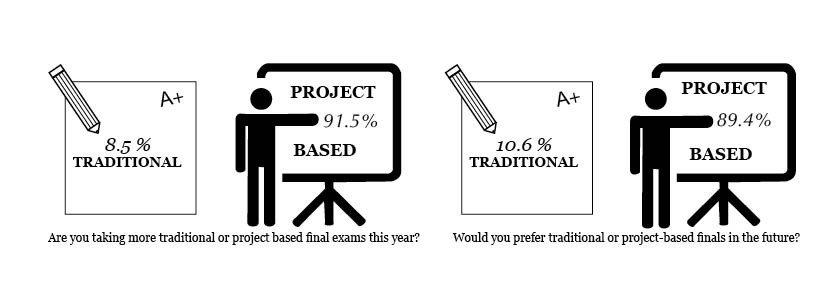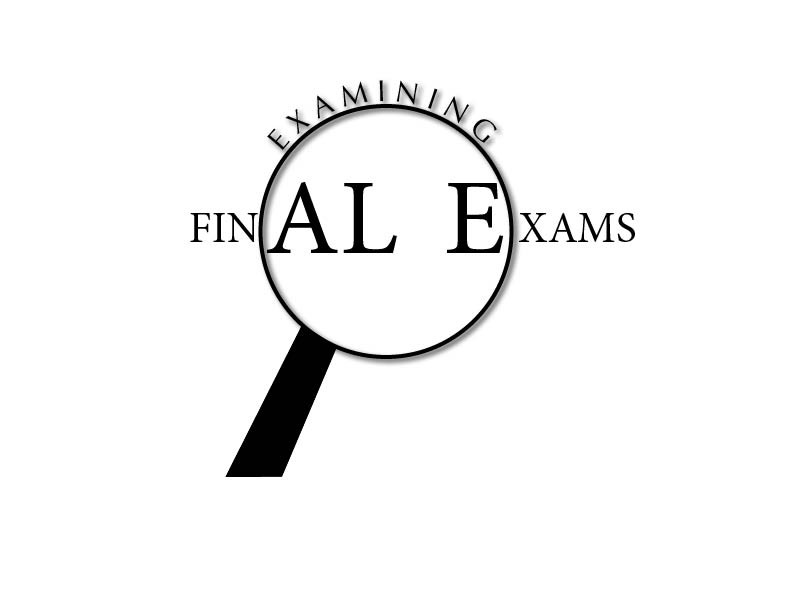Audrey Carr, Reporter
@audreyccourant
Math department chair Becky Pavia’s job is to lead the conversation on things that are coming up including final exams. Due to this year’s unusual circumstances, tests are not able to measure what students learned or how effective the teacher’s teaching was.
Therefore, some classes are doing final projects while some are doing a traditional exam because of the data it provides moving forward. “The traditional test gives you more information about a wider range of topics, whereas the project gives a lot of really specific information about one topic,” Ms. Pavia said.
She believes the students’ project and test results mean different things. “The project tests skills such as problem solving and how processes work, because students are getting a more complicated problem to solve,” she said. “A test is very specific to a problem, acting as a check in.”
Ms. Pavia said the presentation project will better measure students’ understanding of the topic because the students are teaching the class, so they will have to master this topic to explain it, as well as provide better real world preparation. “As a department chair, I think about what we are preparing kids for. When students go out into the real world, most people are working in teams or presenting ideas to a committee but students have a lot of tests to take, including the SAT,” she said. “I think tests are necessary, but I think it’s nice to give students an opportunity to show their learning in different formats.”
Social studies department chair Robert Stevenson said he is still dedicated to student learning. “Despite the pandemic and the strange school year, we still have a desire to make sure students learned some skills related to social studies,” Mr. Stevenson said.
The style they are looking at this year emphasizes skills such as writing, analysis, thinking, comparison, and problem solving. Instead of a high stakes multiple choice test, the department is changing the format slightly. “We are doing a more skill based exam where students are asked to complete a document based question that will still let them showcase what they know.” Mr. Stevenson hopes that this is a compromise between a traditional exam and a project based final that other departments have chosen. He said teachers are aware of what students have gone through this year and are building the tests accordingly. “We need to take a longer view of what the impact has been on student learning. It is not going to show itself in one particular exam or paper.”

English department chair Evan Remley explained the minor change in finals this year and the big change in teaching style. He said the closest approximation to a final in English class is a reader’s response.
As a result of this disruptive year, the English department’s approach is to create a culminating experience in one of the three core areas of the curriculum in a reading or writing base reflection. “In our portfolios, we have summative reflective prompts. Teachers will use that or go forward with something tailored toward their classroom content,” Mr. Remley said. The department is trying to stick with things that are aligning with the curriculum and students’ work habits and content mastery during the year. “We had to really retool our pedagogies. The hardest part is there was not a playbook on how to do it because this was all brand new,” he said.
Science department chair Michael LeDuc said science classes this year decided to do a final project that is a culminating experience. “We determined that this was the most equitable way to assess what students learned this year. These project based assessments will give students a valuable way to show what they learned,” Mr. LeDuc said.
The science department has a lot of rich conversation regarding how assessments can be improved throughout the year. Mr. LeDuc thinks this is an opportunity to explore other means of assessments, some of which might be used in future years, but not to replace a traditional final exam. “Our teachers will meet the students where they are and grow from there,” he said. “Our goal is to academically challenge each student and help them to better understand the nature of the world around them.”




